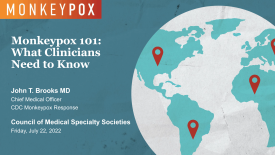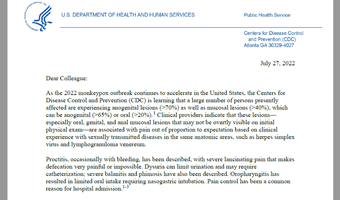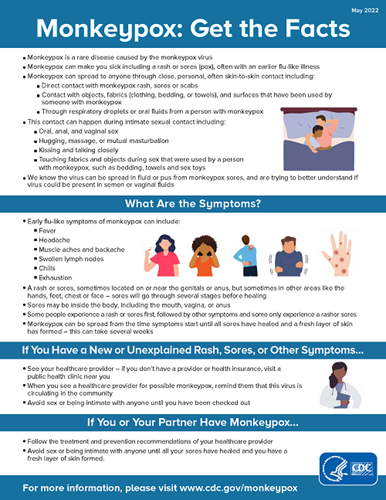What clinicians need to know about the mpox outbreak




The Society of Critical Care Medicine (SCCM) has compiled and developed resources on what clinicians need to know about mpox (formerly monkeypox). While mpox is usually a self-limited disease with symptoms lasting two to four weeks, severe cases and death have occurred during the current outbreak, so it is important for critical care clinicians to recognize potential mpox infections.
The Centers for Disease Control and Prevention (CDC) is urging U.S. healthcare professionals to be alert for patients who have rash illnesses consistent with mpox, regardless of whether they have traveled recently or have specific risk factors for mpox and regardless of gender or sexual orientation.
Monkeypox: Diagnosis, Management, and Prevention
This SCCM webcast reviews risk factors and features of severe mpox and how critical care professionals can play a role in its treatment.
Mpox Outbreak: Frequently Asked Questions
SCCM experts summarize frequently asked questions for clinicians


A July 29 letter from CDC Director Rochelle P. Walensky, MD, MPH, notes that pain is emerging as a major issue with monkeypox and provides basic tools for managing it.
The World Health Organization will be transitioning to using the preferred term "mpox" while phasing out the term monkeypox over the next year.
SCCM supports this change. The former term may still appear in existing SCCM resources and in limited instances to mitigate confusion and allow for resources to be searchable amidst the current outbreak.
